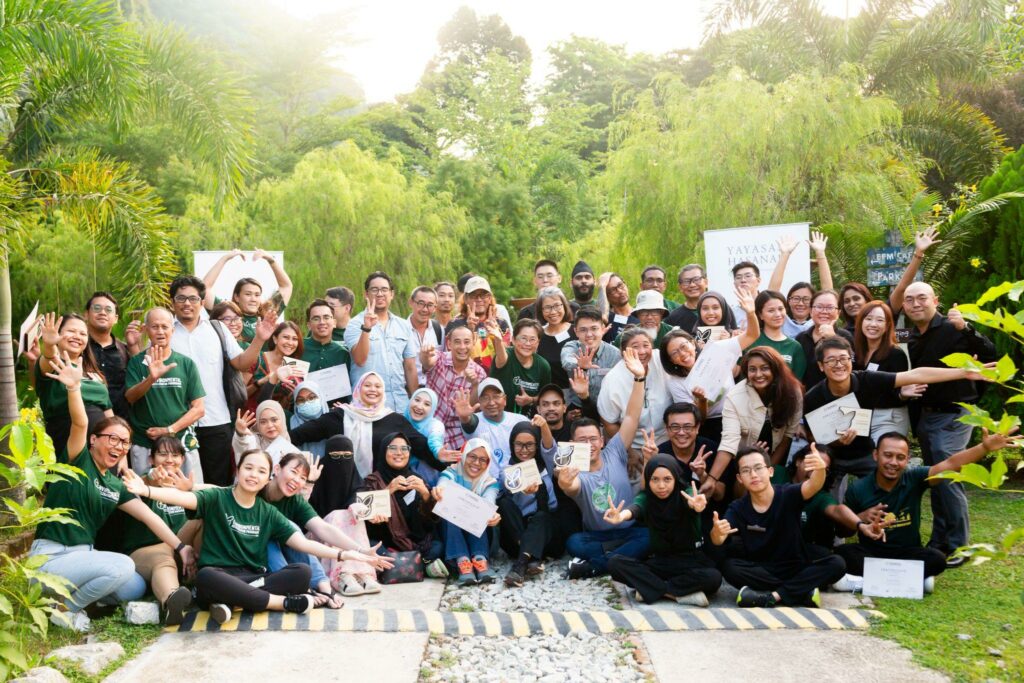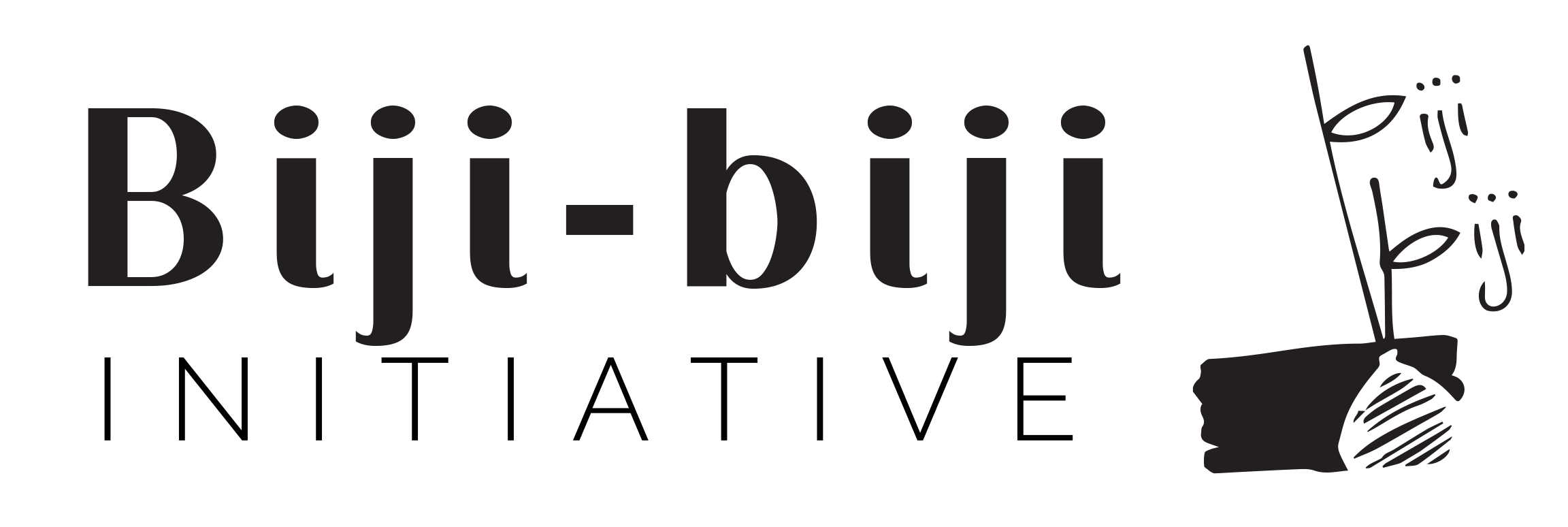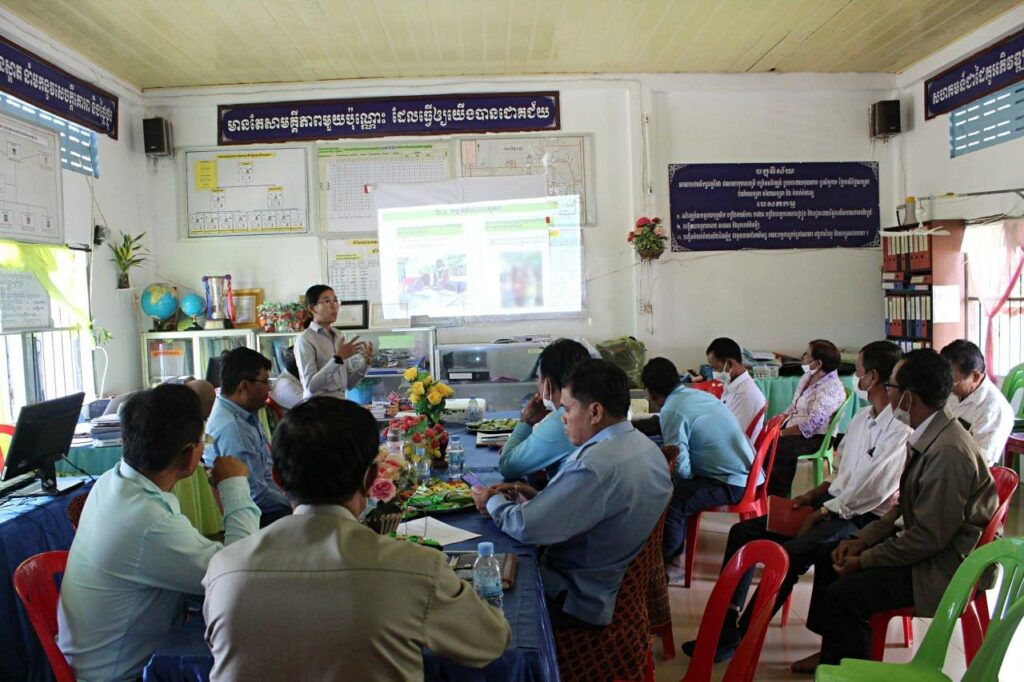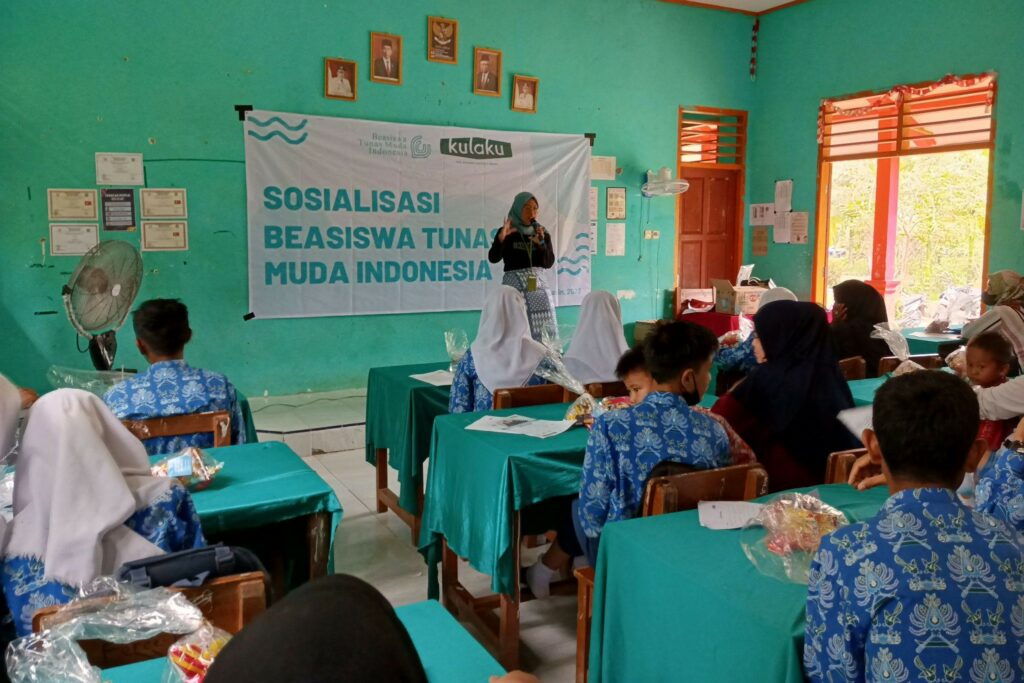Introduction to the Environmental Accelerator Programme
In the pursuit of environmental sustainability, there’s an urgent need to bridge existing gaps hindering the progress of environmental entities—ranging from resource limitations to restricted access to tools—which are formidable barriers obstructing the path to sustainability and community empowerment. Thus, the Environmental Accelerator Programme by Biji-biji Initiative in collaboration with Yayasan Hasanah, goes beyond being an initiative; it’s a commitment to nurture and amplify the impact of these organisations in Perak, accelerating their way for tangible change.
From Classroom to Community: Yet Pin’s Eco Initiative in Kampar
Leong Yet Pin, a retired teacher from Kampar explores her new endeavor with Kamparefill, embodying the transformative potential of grassroots initiatives. Concerned with the unsettling reality of plastic pollution in her community, Yet Pin took action by establishing Kampar’s first refill store, Kamparefill, offering a sustainable alternative to single-use plastics. Through persistent advocacy efforts, including awareness and educational talks, Yet Pin rallied her community to embrace eco-conscious practices with 1,600 bottles of detergents saved from the landfill and over 700 people engaged during her roadshows and educational talks within a 6 months period. Her actions serve as an inspiration, demonstrating that individuals have the power to affect profound change.
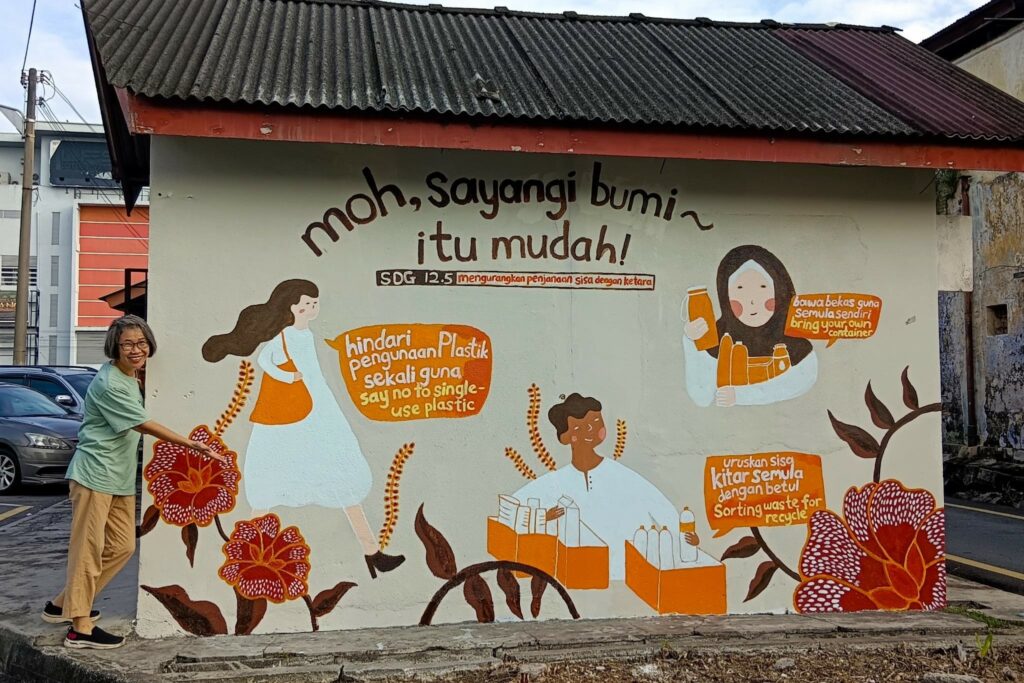
Cultivating Community: Liyana Izan’s Sustainable Farming Initiative in Selama
Residing in a village, Liyana Izan from Cemerlang Tani sees the potential for sustainable farming and aims to spread awareness within her community in Selama, Perak. By setting the standard of sustainable practices that minimise food waste and promote composting, Liyana has fostered a symbiotic relationship between farmers and consumers. “The villagers here have their own farms, some even bigger than mine. So I thought, why can’t we contribute together and complete each other’s needs as a community.” Through initiatives like the ‘Feed Chicken, Not Landfill’ project, Liyana is making a change in her community. Within a 6 months period, she has diverted over four tonnes of food waste from landfills from 20 households and 4 restaurants in her community. This also sparked a shift in mindset towards circular economy concepts in her community as well as providing more job opportunities on her farm for the young adults in the village as farm helpers. Her farm stands as living proof that sustainable farming isn’t something out of reach for the community; it’s a journey anyone can embark on, starting right in their own homes.
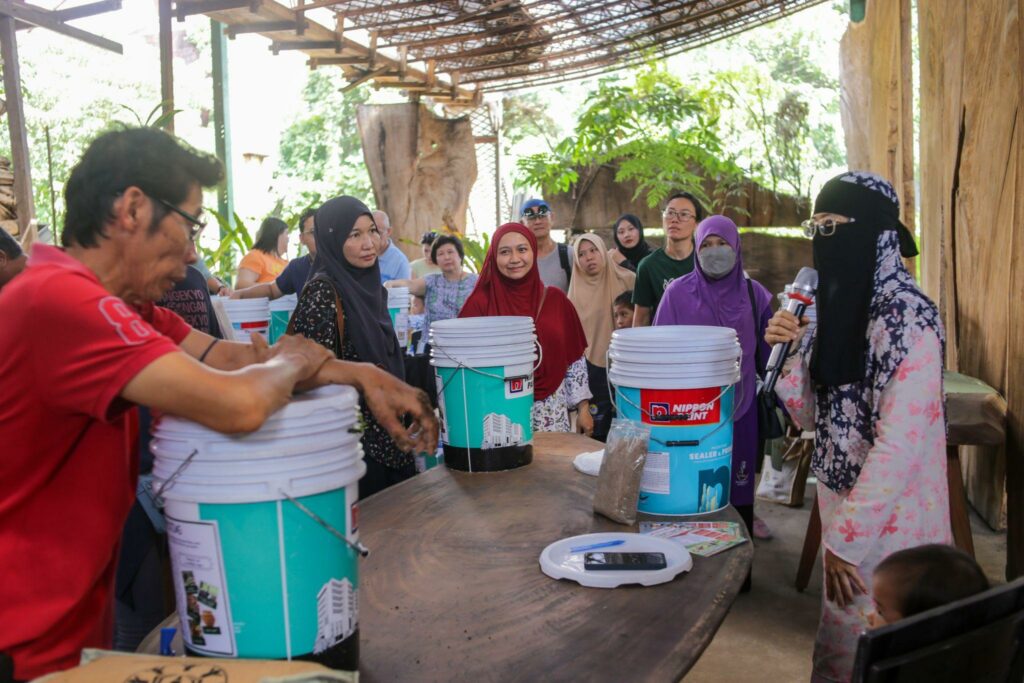
Harvesting Hope: Yuen Mun’s Journey with Kenyang to Feed and Empower Communities in Ipoh
Imagine being a child, aged seven to 12, and knowing that the only nutritious meal you’ll receive is at school. For many children from B40 households, this is their reality. But Yuen Mun refused to let hunger dictate their futures. Through the zero food waste concept, Kenyang rescues surplus food from partners, food that would otherwise end up in landfills simply because it doesn’t meet aesthetic standards for store shelves. Through this initiative, Kenyang not only nourished 50 children from the age of 7 to 12 from the B40 community but also nurtured a sense of community and environmental responsibility by rescuing over 100 kg of vegetables from industrial farms. “If you give a man a fish, you feed him for a day. If you teach a man to fish, you feed him for a lifetime” Yuen Mun firmly believes in this hence she also initiated self-sustainability programmes besides feeding the children. Kenyang is laying the groundwork to empower lower-income communities to break away from the poverty cycle. Yuen Mun’s vision for Kenyang extends beyond meals; it’s about creating a community-driven movement where every individual plays a part in contributing to the community’s sustainability and well-being.
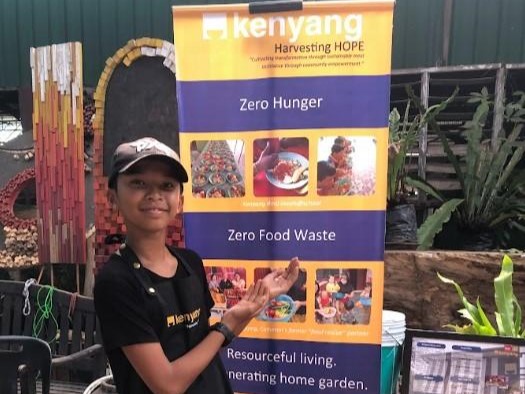
Perak’s Future of Sustainability
The stories above represent just a glimpse of the profound impact catalysed by the Environmental Accelerator Programme in Perak. Within six months of the project implementations, 5,089 people were reached from 36 workshops conducted, facilitating knowledge exchange and skill development through 4 modules that were developed by Kamparefill, Arch Timetraveller, Rymba Management & Leisure, and Ventrex Outdoor Recreation as a tool to educate their participants with more knowledge and relevant information. Additionally, RM13,030 worth of income was contributed to 112 Orang Asli from the community in Tanjung Malim and Gerik area throughout this programme. Addressing environmental concerns, a total of 1584.32 kilograms of plastic waste and 4822 kilograms of food waste have been responsibly managed and saved from landfills.
These impactful results not only address the immediate challenge of the environmental scene in Perak but also aligns with the broader issue of scaling sustainable initiatives, which we’ve identified as a common gap for organisations alike. With the right support, these organisations vividly demonstrate their capacity to overcome multifaceted challenges, such as the lack of expertise, funds, networking, personnel shortage, and recognition through their project achievements.
Addressing the common gaps for scaling, the digital presence of these organisations has also been enhanced as their social media engagement witnessed substantial growth, with an increment of 8336 followers across platforms. 121 partnerships have been fostered with organisations outside of the programme network, indicating strengthened networks of alliances for the organisations. To tackle personnel shortages, intuitive digital tools were introduced to streamline their workflow, now actively utilised post-program. Furthermore, Alam Fest, the flagship showcasing event, provided a vital platform for these organisations to engage with key stakeholders in Perak’s sustainability landscape, reaffirming the program’s dedication to sustainability and its tangible contributions to environmental conservation efforts in the region.
For more insights into these challenges, refer to the article in the Impact Accelerator Case Study.
These impacts have been made possible through collaborative efforts with Yayasan Hasanah and the Ministry of Finance, under the Environmental NGO Accelerator Programme 2021 and the Environmental Accelerator Programme 2023. The sustainability journey does not stop here. As we continue to nurture local change-makers and environmental initiatives, we’re sowing the seeds of a sustainable future—one community at a time. Together, let us harness the power of collective action and pave the way towards a greener, more resilient world.
For participants’ impact portfolio, refer to biji-biji.com/alumni-impact
